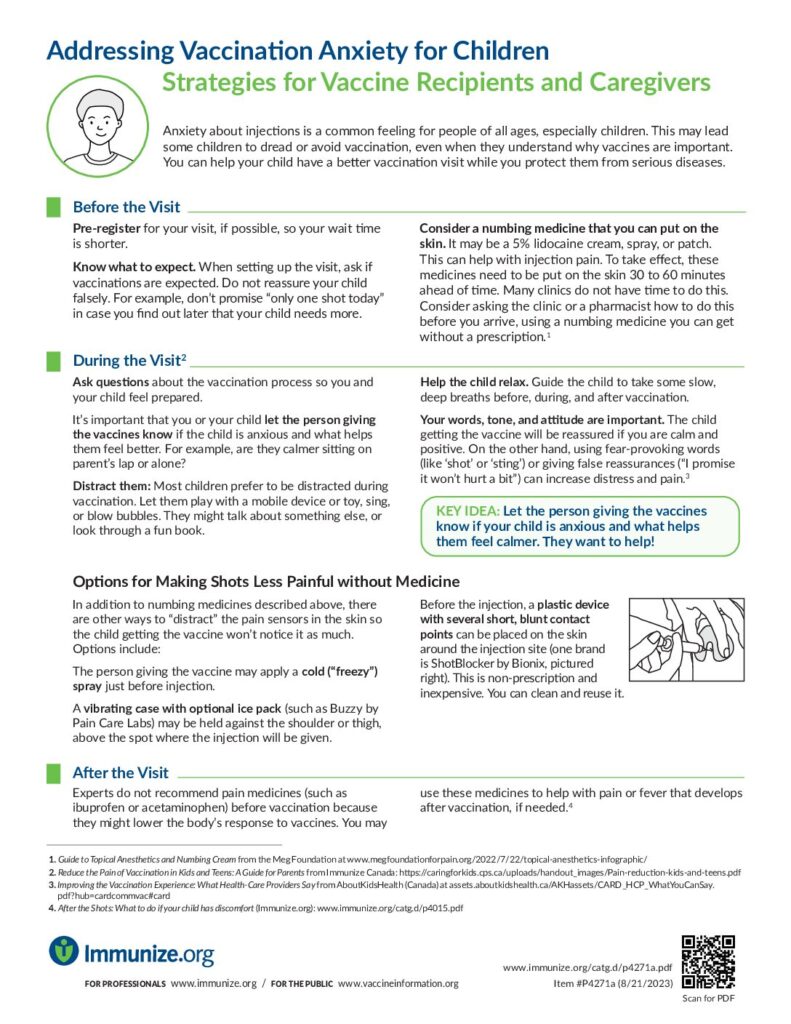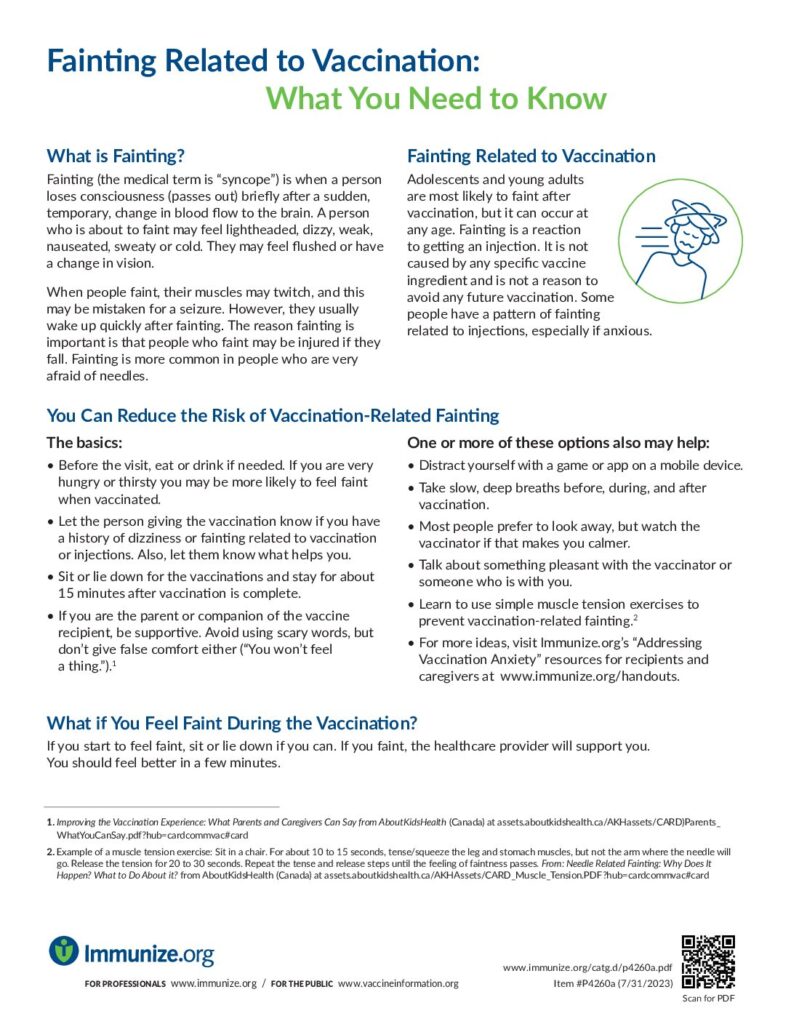 Var
Var If your child has not been previously vaccinated and has not had chickenpox, they should get vaccinated against this disease. The vaccine is given as a 2-dose series. If you child only had 1 dose, they should get a second dose now.
 COVID-19
COVID-19 All preteens need to be protected from COVID-19. Vaccination needs to be repeated from time to time, either because vaccine protection wears off or because the vaccine needs to be updated in response to changes in the virus that causes COVID-19. Most children and adults only need one dose at a time. People who are immunocompromised may need more frequent doses.
 DTaP
DTaP All 11–12 year olds need a dose of Tdap. After that they will need a Tdap or tetanus-diphtheria (Td) booster dose every ten years.
 HepA
HepA Your preteen needs 2 doses of hepatitis A vaccine to be protected from this disease. Talk to their healthcare provider about this 2-dose series of shots.
 HepB
HepB Your child needs a series of doses of hepatitis B vaccine if they have not already received them.
 HPV
HPV All preteens—both boys and girls—should get 2 doses of HPV vaccine at 11 or 12 years of age. These vaccines may be given beginning at age 9 if preferred. The vaccines protect against HPV, a virus that causes cervical cancers, head and neck cancers, and other cancers in men and women.
 Flu
Flu Every person, beginning at age 6 months and continuing throughout their lifetime, should receive yearly vaccination against influenza. Vaccination is the most effective step you can take to be protected from this serious disease.
 MMR
MMR Check with your child’s healthcare provider to make sure they’ve received 2 doses of MMR.
 MenACWY / MenB
MenACWY / MenB Different types of meningococcal vaccines are recommended for use in children, preteens, and teens. These vaccines may protect people during an outbreak of meningococcal disease. Talk with your healthcare provider to determine if your child needs one or both meningococcal vaccines.
- Meningococcal conjugate vaccine or MenACWY: All preteens and teens aged 11–18 need 2 doses of MenACWY (first dose at 11–12 years and second dose at 16 years).
- Meningococcal serogroup B vaccine or MenB: preteens aged 10 years and older who are at risk due to certain health conditions need the MenB vaccine.
 MMR
MMR Check with your child’s healthcare provider to make sure they’ve received 2 doses of MMR.
 PCV / PPSV
PCV / PPSV Some children with serious health problems need extra protection against pneumococcal disease. Talk to your child’s healthcare provider about whether they should receive pneumococcal vaccine.
 IPV
IPV If your preteen hasn’t completed the 3- or 4-dose series of polio vaccine, they should complete them now.
 MMR
MMR Check with your child’s healthcare provider to make sure they’ve received 2 doses of MMR.
 Tdap / Td
Tdap / Td All 11–12 year olds need a dose of Tdap. After that they will need a Tdap or tetanus-diphtheria (Td) booster dose every ten years.
 Tdap / Td
Tdap / Td All 11–12 year olds need a dose of Tdap. After that they will need a Tdap or tetanus-diphtheria (Td) booster dose every ten years.
RESOURCES
Addressing Vaccination Anxiety for Children: Strategies for Vaccine Recipients and Caregivers
This 1-page handout describes strategies that can be followed before, during, and after the vaccination visit to improve the vaccination experience for children. Several useful resources are also listed.
CDC Official Schedule Information
Getting immunized is a lifelong, life-protecting job. Talk with your healthcare provider about which vaccines your child needs and when they should be vaccinated. For more information, check the recommended immunization schedules:
Vaccines are routinely available at doctors’ offices, health centers, and pharmacies. Special vaccination clinics are sometimes held at schools or other public locations. For more information see Where to Get Vaccinated.


